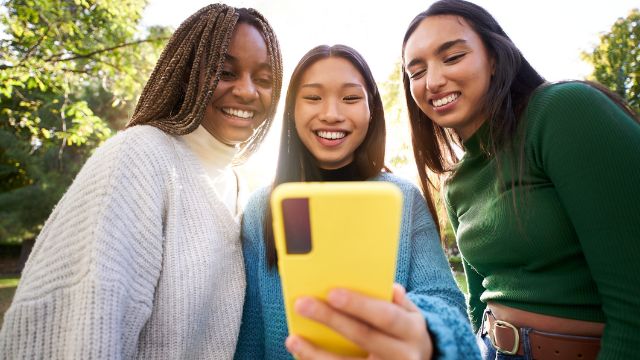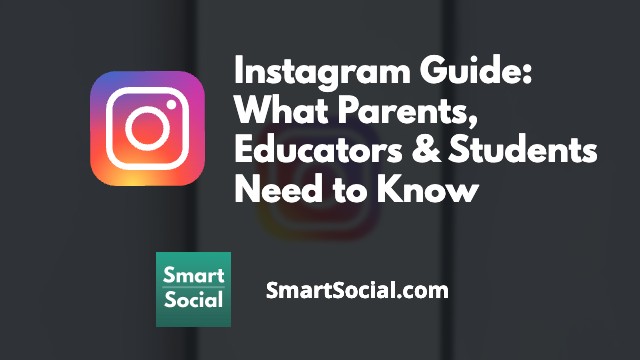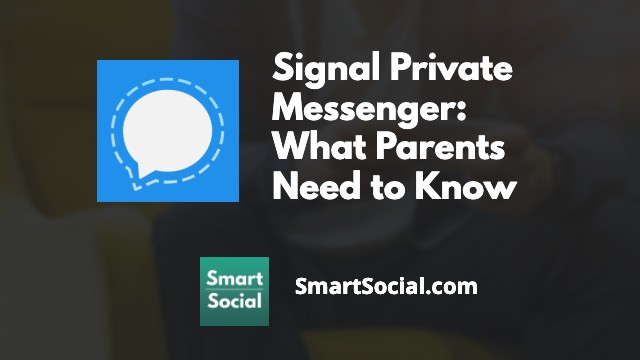Facetune App Guide (2025): Instagram Photo Editing App
Green Zone App
(Click here to learn more)
Dangerous Social media challenge
(Click here to learn more)
Red Zone App
(Click here to learn more)
Gray Zone App
(Click here to learn more)

It’s never been easier to change the way we look in photos. The Facetune app lets users modify photos to remove their perceived imperfections in an instant. It’s almost like having plastic surgery without going under the knife.
Photos edited and retouched on Facetune are plastered all over social media, so what is this distorted view of beauty doing to our children? This SmartSocial app guide will help parents understand exactly how Facetune works before deciding whether it's appropriate for their kids to use.
Parent & educator training video
What is Facetune?
- Facetune is a photo editing and camera app that allows users to take photos and videos or upload and edit media already on their camera roll
- Digitally edited photos and videos can be shared directly to Instagram or other social media or saved to your phone
- Facetune uses AI (artificial intelligence) to change the looks of faces and bodies and users can whiten teeth, remove under-eye circles, reshape their face, resize their bodies, change their skin tone and apply makeup, change eye color, and more
Top concerns of Facetune

- Students might develop unrealistic beauty standards because of doctored photos
- Researchers warn that advanced photo editing apps could possibly lead to “body dysmorphic disorder,” which is a mental health disorder where a person can’t stop thinking about a perceived flaw in their appearance (Source: Boston University)
- The constant pressure to look your best using Facetune can lead to social anxiety, depression, or eating disorders (Source: Psychology Today)
- There are reported cases of people getting plastic surgery to look like the edited images of themselves on social media (Source: Forbes)
What can parents do?

- Before giving your student access to Facetune, download the app, spend time becoming familiar with the features, then determine if it’s safe for your student to use
- If your students use Facetune, regularly monitor your teen’s edited photos and have frequent discussions about what is okay to post
- Talk to your teen about body image and the distorted reality photo editing apps can create
- Explain the difference between making minor edits (like lighting, color, and shadows) and major cosmetic edits (like changing the appearance of your face or body)
- Monitor your children for signs of anxiety, sadness, and depression and consider contacting the school counselor or a private therapist if your teen needs help coping with body image issues
Additional information
- There was previously a free version of the app called Facetune 2, but they have been combined into one Facetune app (Source: Facetune)
Why do students want to use Facetune?
- Facetune is easy to use and doesn’t require any special photo editing skills to edit photos
- Students see other people’s edited photos on Instagram and want to use the same filters and tools to achieve the same look
What is Facetune rated?

Apple App Store rating: 4+
Google Play Store rating: E (Everyone)
Owned by Lightricks, Based in Jerusalem
Examples of Facetune in the news

Today, we compare ourselves to the perfectly filtered and flawless online images of friends, neighbors, and even ourselves. With recent advances in editing, everyone has the ability to be airbrushed—not just celebrities. We can all create our own perfect self-image using the latest filters and apps. - Dr. Kim Anderson, Psychologist, Forbes Magazine

Young women who spent just 10 minutes taking, editing and posting selfies to social media reported feeling more anxious, less confident and less physically attractive afterwards compared to those who didn’t engage in these behaviours, - Dr. Phillippa Diedrichs, Psychologist, Forbes Magazine
Conclusion
While kids of all ages can have fun morphing their faces and bodies through the use of photo editing apps, like Facetune, many experts believe the consequences of tweens and teens regularly modifying their appearances for social media could leave lasting negative effects. Parents should be aware and have an open dialogue with their students about these potential outcomes.
More resources for parents, students, & educators
If you want to view more photo editing options, visit our Instagram Editing Apps Guide
Listen to Dr. Rady Rahban discuss the ripple effect of social media beauty filters on the SmartSocial.com Podcast
Protect your family and enter for a chance to win cool prizes
Become a member or log in to learn more on this topic
Protect your family and enter for a chance to win cool prizes

., start learning from this page to earn points!*
Hello, I'm Josh, the founder of SmartSocial.com.
Don't leave this page until you fill out our feedback form that will appear after you learn from the resources...
Become a Very Informed Parent (VIP) to get our social media suggestions in your email every Tuesday & Thursday.



Hello, I'm Josh, the founder of SmartSocial.com. Protect your family by taking my 1 minute quiz
This quiz will help you understand how safe your family is


Schools & Districts: Partner with us to protect your community online
Our remote presentations (and website) teach over a million parents and students each year how to be safe so they can shine online. We teach students how their accounts can be used to create a portfolio of positive accomplishments that impress colleges and employers.


Join Our Smart Social Podcast
each week on iTunes
With over 500 episodes, Josh Ochs interviews psychologists, therapists, counselors, teachers, and parents while showing you how to navigate social media to someday shine online.
Listen on:




.jpg)



.jpg)


